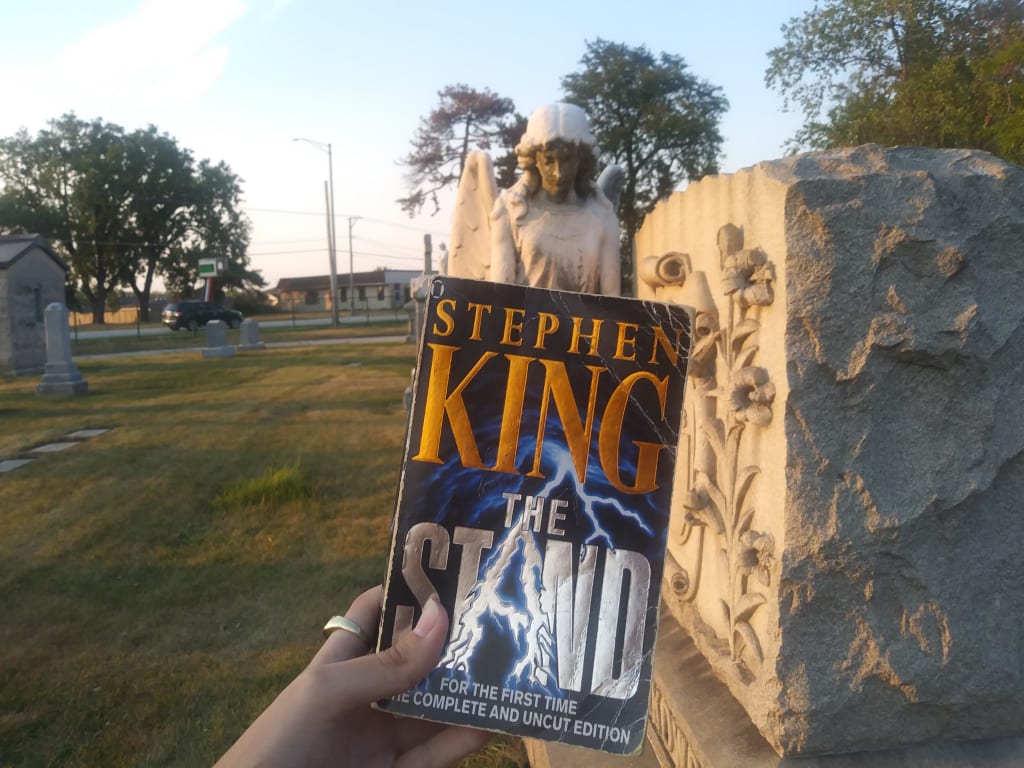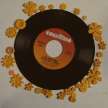Frannie Goldsmith’s Things to Remember: ‘Femininity’ is not synonymous with ‘Weak’.
Do readers now lose respect for a hero once they begin to act in ways that society told them were too ‘feminine,’ which just so happen to be traits that coincide with society’s idea of being weak?

{Disclaimer: Fiction is all subjective. I am not coming from a judgmental place nor am I saying that this is the only possible reason that anyone could dislike Fran’s character. I’m just hoping to raise a few questions.}
Any one person—no matter their gender—engages in many forms of femininity and masculinity. Society has perpetuated several ideas about “feminine” and “masculine” behavior throughout years of life which has resulted in several stereotypes. Being a romantic or having a nurturing personality has commonly been associated with women. On the other hand, ‘masculine’ traits are generally accepted to be aggression and boldness. There are a variety of written tropes in fiction which are based on such ideas. They have become staples, though in many cases, they can be quite damaging. For instance, there is the concept that in order to be viewed as a strong heroine, a female must reject traditionally feminine characteristics and be more like society’s vision of a man. This is one of the most recurring tropes in fiction today; though it’s based on sexist ideas and can be damaging to various genders, the trope has been heavily popularized for years. While times have begun to change, such tropes are still a problem in new media. This begs the question, “Do readers now lose respect for a hero once they begin to act in ways that society told them were too ‘feminine,’ which just so happen to be traits that coincide with society’s idea of being weak?” Looking at the audience reactions to one of the most popular works of fiction, The Stand by Stephen King, one can see nearly all the attributes that give Frannie Goldsmith the most flack are traits that have most commonly been associated with women and femininity. It is not the fair constructive criticism of King's portrayal of women that is being analyzed here, but the idea that many readers have become far too comfortable in their thinking that ‘femininity’ is synonymous with ‘weak’. Looking at a sample size of seventy Goodreads reviews from the last ten years - all of which mention a dislike or disinterest of Frannie’s character - about 81% cite reasons involving romantic, motherhood/pregnancy or emotional traits.
Fran Goldsmith is a head-strong and determined girl who falls in love with Stu Redman after the world ends. But, it is once Fran actively participates in the pursuit of this romance that a lot of readers mention losing interest or even outright disliking both characters. “Stu Redman once was an interesting character, but he becomes a cornball once he meets Fran and delivers cheesy romance lines.” (“The Stand by Stephen King.” Goodreads, Goodreads, Inc., www.goodreads.com/book/show/149267.The_Stand). This not only shows the negativity readers have towards women having aspects of 'traditional femininity,’ but it also illustrates a hostility towards men who possess those qualities too. The suggestion that the romance invalidates Stu’s character, who was previously presented as a quiet Texan, stands out, evoking questions like: Why have expressions of tenderness become a normalized reason to dislike a character? Why are readers pulling away from characters who grow more affectionate? “Love at first sight, then "illicit lovers", then a happy cozy home life, and finally a perfect little family. Nope, not interested.” (“The Stand by Stephen King.” Goodreads, Goodreads, Inc., www.goodreads.com/book/show/149267.The_Stand). A happy ending in a novel full of death and anxiety, yet some readers can only ask: ‘Why should I care?’
Stephen King novels most often feature romantic storylines - be it center or background situations - and The Stand is no exception. Fran Goldsmith and Stu Redman are perhaps one of the most well-known of his fictional couples and it’s clear that King really enjoyed writing their relationship from the overflowing content. Novels are subjective and a reader’s personal taste by itself does not incite argument. But reading through some of the most outspoken reviews against Fran, it’s interesting to note those who cite their ‘corny’ relationship as reason enough to dislike both characters tend to place the blame on Fran. “I loved Nick and Tom but even Stu (who I really liked to begin with) got kind of dull - possibly down to the Fran effect. Anyone in her general vicinity becomes dull as mud in my opinion.” (“The Stand by Stephen King.” Goodreads, Goodreads, Inc., www.goodreads.com/book/show/149267.The_Stand). After the romance begins, Stu becomes a much happier man who engages in affection without shame. If that’s the ‘Fran effect,’ then it doesn’t seem like such a bad thing.
Fran’s happy ending wouldn’t have been complete without her, previously daunting, pregnancy coming to an end. But, over time, a lot of readers developed issues concerning Goldsmith being a more ‘traditional’ mother figure, viewing the trait as a flaw. “The woman, so strong and independent in previous chapters, becomes the worried mother-to-be, hands clutched at her neck, waiting for her love to come back home.” (“The Stand by Stephen King.” Goodreads, Goodreads, Inc., www.goodreads.com/book/show/149267.The_Stand). The question one has to ask is: Why are the terms ‘strong’ and ‘Mother-to-be’ used as if mutually exclusive? Near the beginning of the novel, Fran goes against her own mother regarding her choice to be a single mom. This was a decision that garnered respect from most of the readers who later turned against her. Because it’s when she begins to settle down in her love for future child & husband that some readers start resenting her (be it subconsciously or not). “I’m thinking of Fran, who I’d started to like, but when she got to the Colorado community, she became different and kind of annoying. I liked her better when she was all bad-ass chick on a bike with a gun who’ll protect her baby but can take care of herself.” (“The Stand by Stephen King.” Goodreads, Goodreads, Inc., www.goodreads.com/book/show/149267.The_Stand). Why should a woman dealing with the hardships of pregnancy after the plague have to exude ‘bad-ass’ energy in order to be liked? Many reviews expressed a genuine dislike of Frannie once she’d been allowed to relax a little and settle into a ‘Mother’ role.
The role of Motherhood is a frequent theme in The Stand, with characters like Frannie, Lucy Swann & Nadine Cross all displaying a nurturing side or the literal act of parenting a child. The complaint that Stephen King often writes women in such a stereotypical role is not without its grounds, take this quote from the 1974 novel ‘Carrie’; “Maggie White, she was a dull person, but a sensational invitation to make babies. Men looked at her and wanted to fill her up with babies right away.” (King, Stephen. Carrie. Hodder Paperback, 2019). However, in the case of ‘The Stand’, it’s not just Fran’s motherhood alone that is heavily represented or singled out in the book. The theme actually falls under a greater umbrella of the ‘Family/Found Family’ motif, which is hard to ignore when the first half of the novel is all about groups coming together and finding hearts to build homes in during tragedy. After all, Fran does carry her baby along the journey, Lucy and Nadine take care of a child named Leo Rockway (who notably refers to them as Lucy-mom & Nadine-mom). Mother Abagail does her best to take care of everyone and Larry Underwood forms a parental bond with Leo that ended up becoming an essential part of his growth as a human being. “Not to mention that both female characters whose names are worth remembering are mother figures. Mother Abagail, could not be more explicit in her motherliness, and Fran is pregnant.” (“The Stand by Stephen King.” Goodreads, Goodreads, Inc., www.goodreads.com/book/show/149267.The_Stand). Even if Stephen King writes a lot of his characters to be mother’s or parental figures, why is that a bad thing if the act itself doesn’t negate a character's strength? Maybe it’s worth remembering that calling someone out to be a ‘mother figure’ isn’t an insult, period. Especially when one of the overarching themes of the novel is the strength it takes to be a mother. Be it through Larry Underwood not being able to develop until he realizes the turbulent relationship with his mom was up to him to fix; “He had not come home to her because he had to go somewhere. He had come home because he was afraid and wanted his mother.” (King, Stand. The Stand. Signet, 1978), Lucy Swann loving and raising Leo as her own child or Fran standing-up to her mother and withstanding a hellish plague that no one saw coming while going through pregnancy.
Perhaps enhanced with her pregnancy, Fran is portrayed as a very emotional person over the long 1,000+ pages. The belief that women are more emotional than men is one of the most recognizable gender stereotypes in society. While the time has passed for such an idea to be accepted as fact, it’s interesting to question why society long associated being ‘too emotional’ with women while perpetuating the idea that it was a weak trait. Objectively, a character bursting into tears quite a lot is a sound reason for annoyance. But again, it is the surprising amount of readers who view Fran’s emotional range as a fault in King’s portrayal of what they consider a ‘strong’ heroine, who are perpetuating the stereotype. “Fran is an annoying character, constantly hysterical. I can only imagine she is extremely beautiful, as I can't understand why else Stu would have put up with her.”(“The Stand by Stephen King.” Goodreads, Goodreads, Inc., www.goodreads.com/book/show/149267.The_Stand). There are a few problematic layers to that statement. But the use of ‘hysterical’, in a very belittling manner, when referring to Fran’s frequent crying during the end-of-the-world situation further sustains the idea that readers have come to expect their heroes to hold back emotion in order to define them as strong or even worthwhile. “Take Fran I mentioned above: she came out as a somewhat unbalanced woman falling into giggling hysterics at a slightest reason; not the one to care for.” (“The Stand by Stephen King.” Goodreads, Goodreads, Inc., www.goodreads.com/book/show/149267.The_Stand) Why should a character be discounted for continually expressing/releasing stress through tears or laughing? What does it say about society that many people view it as a weakness? Why does her frequent giggling seem reason enough to refer to her as ‘Not the one to care for’?
Fran Goldsmith cries around the total number of twenty-four different times during the novel. When in comparison to another character, Larry Underwood who cries around nine times, the number is substantial. Showing that Stephen King is perhaps guilty for associating being emotional as a ‘feminine’ trait. Though it’s interesting to note that letting go and being emotionally vulnerable is part of Underwood’s growth into a better person. Being annoyed by Fran’s sobbing is an understandable thing but the question is: why do a surprising amount of readers claim this as reason enough to dislike her character? “I mean, was I supposed to cry when Frannie thinks of her sob stories? I just found myself annoyed as hell and wished these were cut. Get a life, Fran. Get a life.” (“The Stand by Stephen King.” Goodreads, Goodreads, Inc., www.goodreads.com/book/show/149267.The_Stand). Every instance of Fran’s tears in the novel comes from the horrible situations she endures. Take the death of her father which completely devastated her yet she alone manages to carry his body from her house and bury him. Tears were shed then but they didn't discredit her strength. Fran does think back on her ‘sob stories’ often but Larry Underwood does virtually the same thing on multiple occasions throughout the novel yet isn’t deemed hysterical or unbalanced by numerous reviewers. Are readers more likely to let Larry’s outbursts pass because he’s shown to struggle against them? He explicitly explains that he fears crying makes him, what he calls, a ‘sissy’ (another derogatory gendered expression). Though he does need to cry, he fights it and because Fran cries freely, therefore wrecking her participation in anything like a ‘Bad-Ass heroine’ trope, readers reject her. Crying because something hurt you, should never be looked down on. Just as holding back tears for the sake of appearing ‘strong’ in society’s terms, shouldn’t be praised.
As expressed, the purpose of this article is to start discussions--not about those who just don’t like Fran Goldsmith. But about the readers who are comfortable justifying their dislike, or even liking, of characters like her by reducing them to their ‘feminine’ qualities. “Either way, I felt an emotional connection to just about every character, hero or villain. I could sympathize with the Trashcan Man’s traumatized and diseased mind almost as well as Frannie’s simple, feminine one.” (“The Stand by Stephen King.” Goodreads, Goodreads, Inc., www.goodreads.com/book/show/149267.The_Stand). Femininity should not be seen as a weak or ‘simple’ trait in anyone. There’s nothing wrong with it, anyone can be feminine just the same as they can be masculine. No matter their gender, people experience a range of behaviors. Being emotional does not cancel out a character's strength nor does it belong to a specific gender. Indulging in romance or embracing motherhood doesn’t invalidate the rest of the character journey. Just because society has continually perpetuated the stereotype that certain traits are weak and defined them through women/femininity, doesn’t mean that’s a fact.
About the Creator
Jaime Burbatt
My name is Jaime, I'm 24 years old & my dream is to be an author






Comments
There are no comments for this story
Be the first to respond and start the conversation.